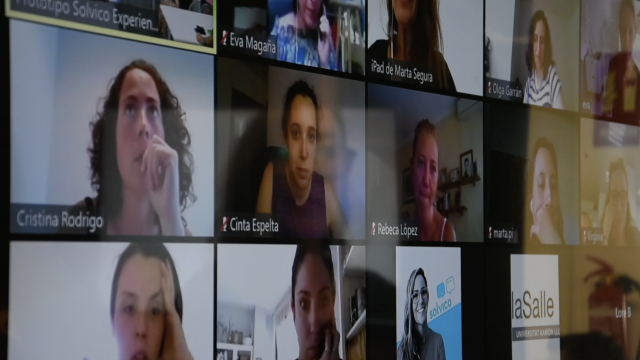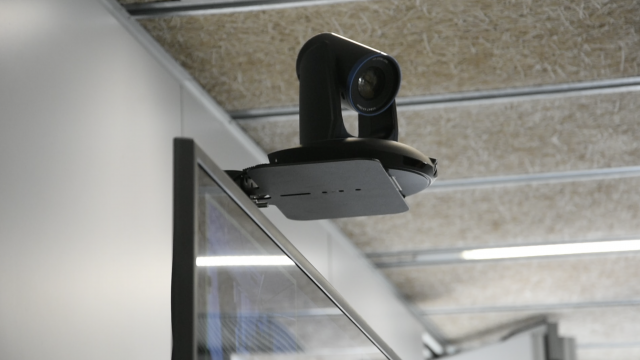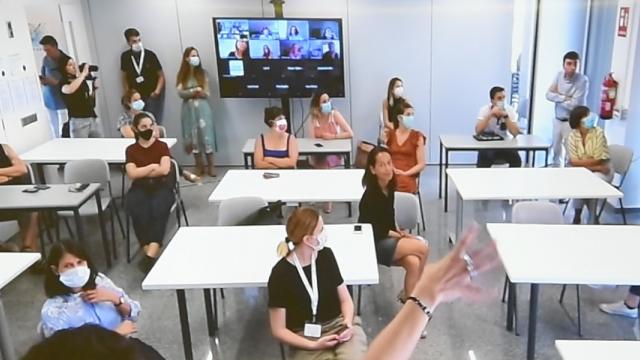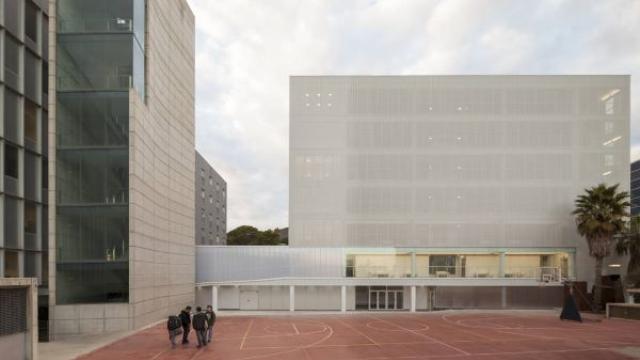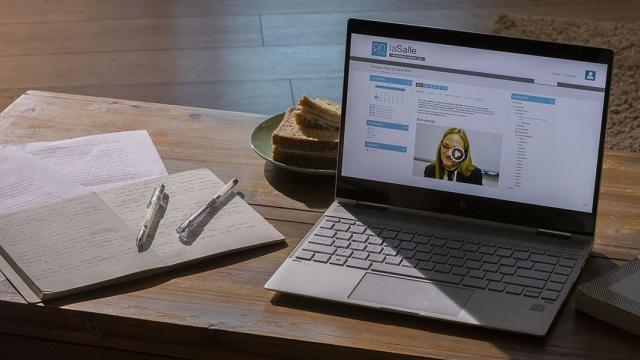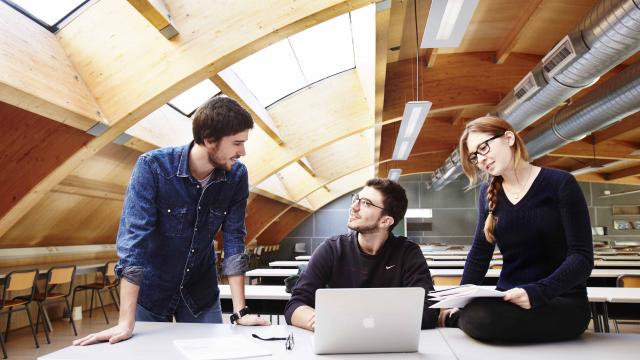The new normality requires a new way of teaching and learning, adapted to a constantly changing situation that demands flexible learning, without having a single methodology, but multiple options that, in an intelligent and technological way, adapt to all new educational needs of students.
La Salle Campus Barcelona, anticipating this new educational context with which we are going to coexist next year and in the long term, has developed a new personalized, flexible, intelligent educational model based on the use of technology that adapts to the needs of face-to-face, blended, distance and online education, in all its multiple versions and possible combinations, according to the needs of the program and the students.
We have called this new model, which considers possible new scenarios, Smart learning and it will be implemented in all our degree programs, masters, courses and executive education starting in September 2020.
With this new post-Covid educational education model, we reinforce and strengthen our educational method "Learning by Challenge" that enhances our differentiating DNA based on: technology, innovation, entrepreneurship and internationalization to train people with values, people who contribute and that it is one of the differentiating characteristics of La Salle students. An educational model in which the student is at the center of the educational process and that responds to the new needs of our students and society and to the new needs of companies and institutions.
In order to implement Smart Learning, classrooms are being transformed into Smart Classrooms, with technology that will guarantee us onsite education for all students and ensure that they live a quality educational experience adapted to their needs or circumstances, wherever they are, and regardless of the healthcare scenario during the coming courses. The new model and the implemented technology will allow students who require it to attend onsite and participate in classes without being physically in the classroom. Classroom sessions with onsite students will be broadcast live on the Internet and students attending from outside the classroom will be projected on screens so that onsite teachers and students can see them and interact with them. Students in and outside the classroom will form a single group that will learn together.
The new model will allow national or international students who cannot make it to the beginning of the academic year to start the programs as if they were on campus. Similarly, if during the course some students have difficulties in physically accessing the campus, the sessions and practices could be carried out, temporarily, remotely and live, maintaining the same academic hours, the same educational experience and contact with the rest of the students in the group and on the campus.
Smart Campus
Likewise, we have technologically adapted to our campus and classrooms to create a totally safe environment in any situation. A maximum capacity has been established for each space in accordance with the regulations, and accesses and internal routes have been established and specific signposting installed to ensure safe mobility on campus. We have also implemented temperature control systems, increasing and modifying the cleaning protocols, installing hand sanitizer dispensers and special soaps in the bathrooms, ... In short, we are working to implement, in the coming months, the changes that will allow us to transform our campus into a Smart Campus fully adapted, prepared and redesigned also for the new reality of onsite, blended, distance and online learning in the classrooms and in the more than 35 labs on campus.
In addition, the Smart Learning educational model makes our entire ecosystem available to onsite and online students so that, through a multimodal and multimethodological system, they can feel social relationships, access all campus services and experience the campus. We are working with research groups, partner universities and universities with which we have exchange agreements to facilitate virtual mobility and research experiences for those students who cannot participate in person or move to other countries for personal reasons or due to the closure of borders.
Another of the differential characteristics of our training is the close relationship with companies, entrepreneurs and national and international institutions. The new model also includes alternative models of participation of companies in the onsite and online programs, adapted to the new scenario, onsite or virtual internships in companies on a national and international level and interaction with the start-up companies incubated on the campus... We want to ensure the stable and close relationship that La Salle has always maintained with the entrepreneurs on campus and the companies that trust and support our students, and to foster those synergies that bring more value to our students and to the companies. For this reason, in recent months, new projects and innovation and research initiatives have been promoted with the ultimate objective of improving the educational experience of our undergraduate, master's, course and executive education students.
Smart learning model characteristics
- Real-time participants distributed geographically (students in and out of the classroom)
- Adaptability to each student's learning preference and demand
- It enhances the social relationship and cooperation among students.
- High Engagement
- Natural Interaction
- Connectivity from any device.
- Access to learning resources and related services
- Interoperability between services and platforms.
- Monitoring of learning and individual records
Smart Learning is La Salle's new educational model. A more humane, collaborative, interactive and socially conscious educational model that guarantees flexibility, agility, personalization and scalability in the current environment to all our onsite and online students.








